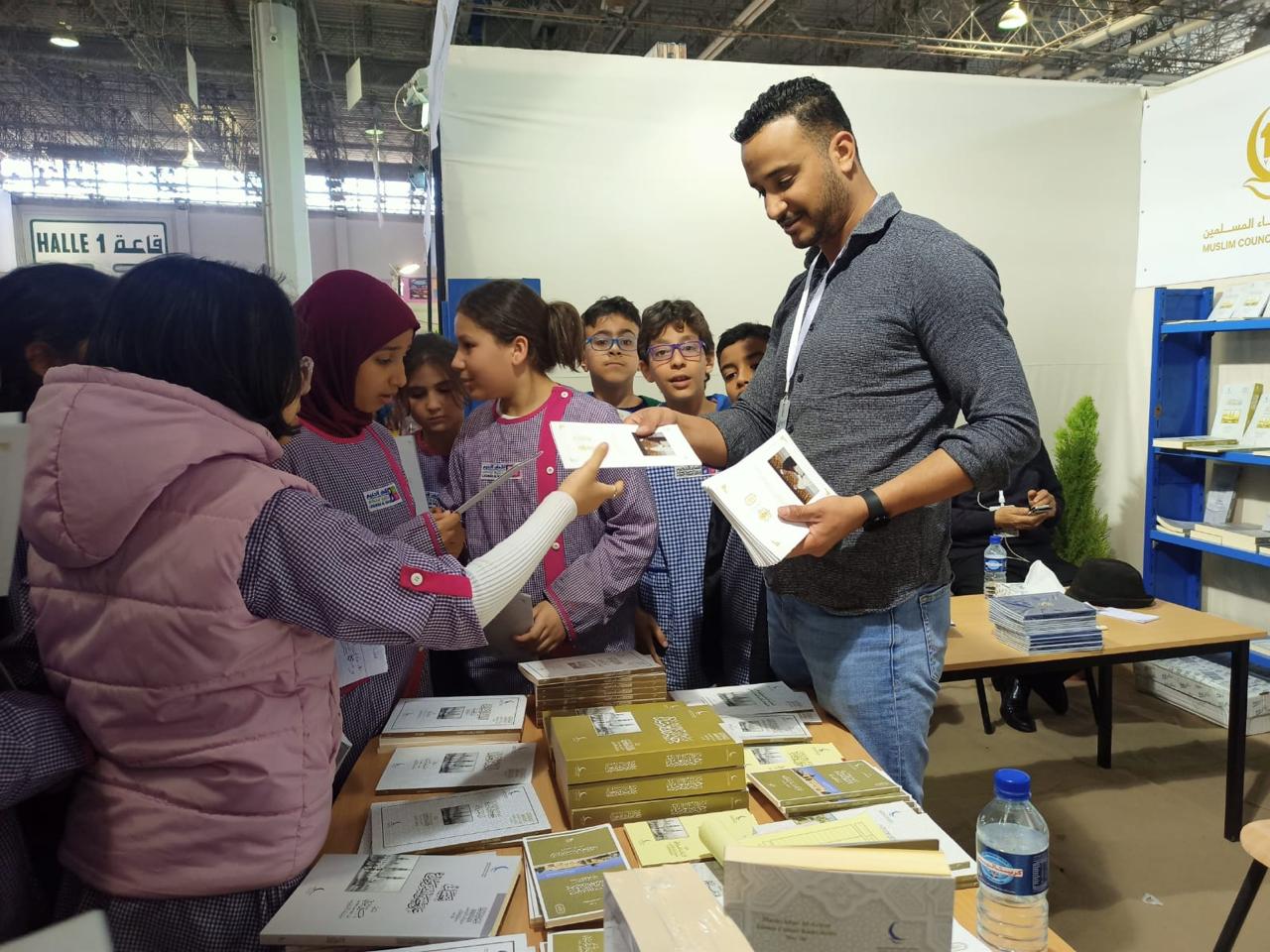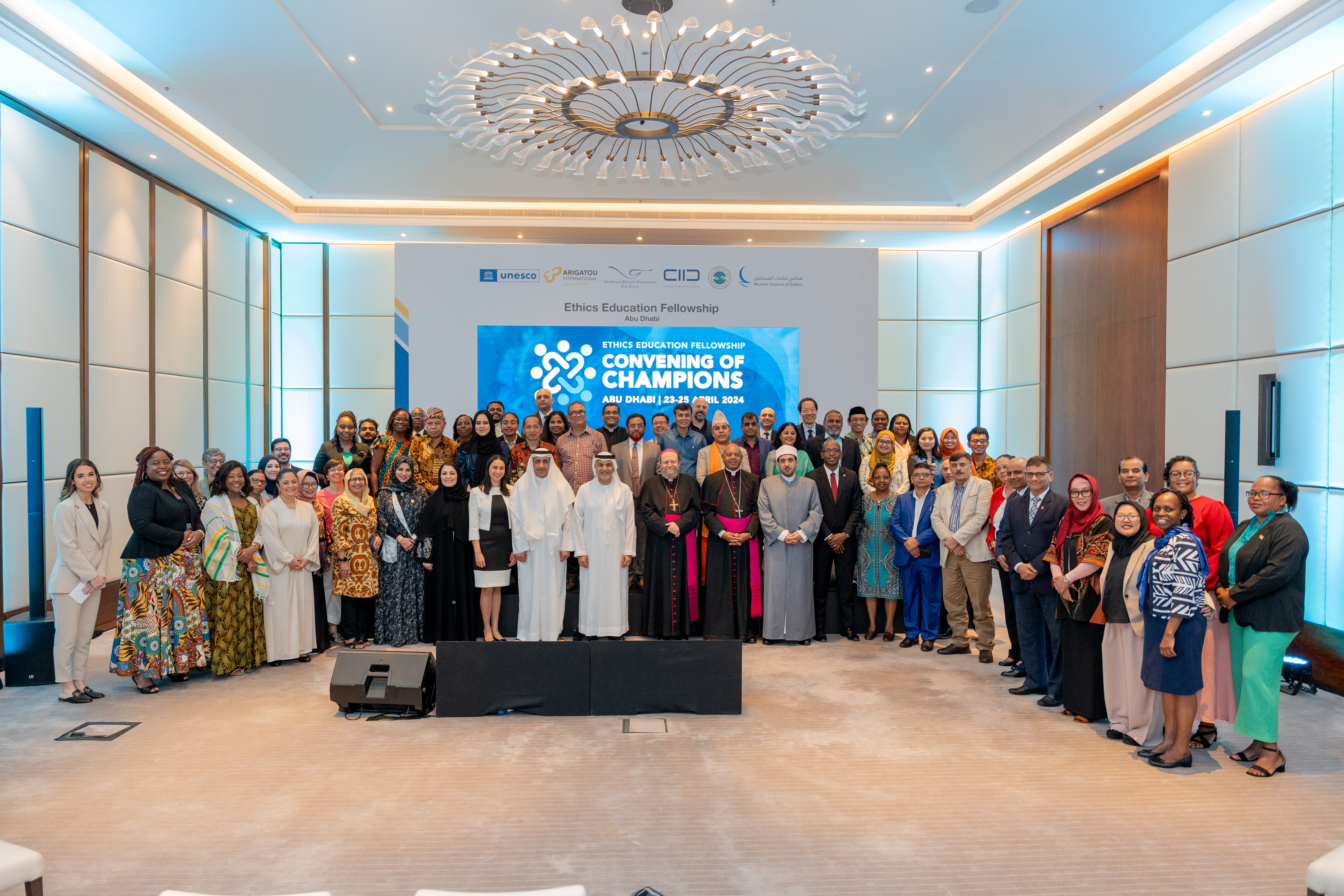Calls for Reconsidering the Management of Climate Disasters from Ethical and Religious Perspectives
Sri Sri Ravi Shankar Emphasizes the Importance of Increasing Awareness on How to Preserve the Earth
Day 9 of the Faith Pavilion at COP28 continued with a total of 7 sessions hosting 27 speakers. The discussions focused on enlightened perspectives on disasters and climate events, climate and nature advocacy and action, mobilizing faith communities for land restoration, faith in action for climate justice in addressing loss and damage, the Mediterranean Climate Hub, and faithful stewardship in addressing the climate crisis in blue food systems.
The first session, titled "Living Spirit or Commodity? Traditional and Faith-Informed Perspectives on Land and Land Use in Disasters and Climate Events," explored ways to confront climate disasters and adapt to climate change effects. Participants emphasized the role of religious leaders and communities in recovery and proposing solutions to the crisis. They called for creating innovative methods to prepare for climate disasters using modern technological means, changing the culture of preparedness, and adopting a proactive approach to disaster management to reduce individual risks.
In the second session, "Climate and Nature: Strengthening Advocacy and Action," participants highlighted the interconnectedness of the climate and nature crises, emphasizing that one cannot be solved without the other while also underscoring the need for cooperation and partnership with religious leaders and communities, engaging new effective entities from different sectors to bridge the gap between science and religion. Participants praised the organization of the Faith Pavilion at COP28, affirming that religious communities can shape ideas and programs at the societal level to create a better future for everyone and protect the environment.
The third session, "How to Mobilize Your Faith Community Towards Land Restoration," focused on the belief that 85% of the world's population follows a belief or religion, emphasizing the importance of collaboration between different religions to address the common cause of land restoration and the climate crisis. Participants discussed the common values among religious leaders and representatives of various religious groups to support the responsibility of preserving the land and saving the planet from climate change threats.
Indian spiritual and humanitarian leader Sri Sri Ravi Shankar emphasized the importance of focusing on organic farming to preserve the environment. He outlined the methods implemented to conserve heavy rainfall and utilize it in agriculture, affirming that religious leaders and communities should enhance awareness of how to preserve the land and ensure its sustainability. He also urged officials to develop plans and solutions to address the climate crisis, highlighting that religious leaders have credibility with their communities.
In the fourth session, "Faith in Action for Climate Justice in Addressing Loss & Damage," participants discussed the vital role played by active religious entities in leading climate action. They appreciated the announcement by His Highness Sheikh Mohamed bin Zayed Al Nahyan, President of the UAE, to establish a $30 billion fund for global climate solutions, addressing the climate financing gap and facilitating affordable access to it and that the fund's significance in fairly reducing the impact of the climate crisis.
The fifth session, "Mediterranean Climate Hub," explored the future of youth movements and initiatives within the framework of adaptation and climate change. Participants discussed the impact of climate change on the Mediterranean region and emphasized the need for cooperation and participation in environmental and humanitarian solidarity to find solutions sustaining the region's resources.
The sixth session, "Pastoral Care and Support for Negotiators" focused on the unique role and power of religious leaders in influencing and shaping negotiations to mitigate the effects of the climate crisis and enhance climate justice. The seventh session, "Faithful Stewardship: Addressing the Climate Crisis in Blue Food Systems," discussed the challenges faced by blue food systems, including aquaculture and fisheries, in the context of climate change. Participants emphasized the importance of prioritizing funding for blue food systems to achieve social and environmental resilience while respecting social justice to save the planet Earth.
The Muslim Council of Elders is organizing the Faith Pavilion at COP28 in collaboration with the COP28 Presidency, the Ministry of Tolerance and Coexistence in the UAE, and the United Nations Environment Programme. Held from December 1 to 12 at Expo City Dubai, the pavilion will feature representatives of nine religions participating in around 70 dialogue sessions with over 300 speakers from around the world.

